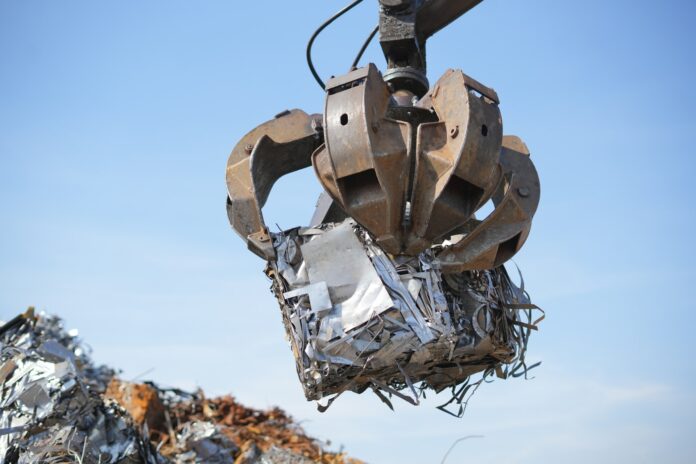
Local businesses face rising costs and pressure to reduce waste. Scrap metal recycling offers savings and greener operations. Old equipment can become a revenue stream. It also boosts a company’s eco image. Many firms overlook this chance and instead send metal to landfills. This wastes resources and value. Adopting recycling can change waste into profit for any size business. Here are seven reasons why this matters.
1. New revenue opportunities
Partnering with these experts in metal recycling in Sanford ensures fair pricing and fast pickup. You can sell iron, copper, aluminum, and brass. These metals have market value that changes daily, and tracking market rates helps you time sales right. Extra income can cover utility bills or fund staff training. This steady stream smooths cash flow. Even occasional sales add up by year-end. In addition, bulk pickups save time and truck space, and choosing a trusted recycler reduces hassle. This revenue can support your growth plans.
2. Lower disposal costs
Many businesses pay fees to haul scrap metal. Recycling can reduce or eliminate these charges. A local processor may even pay you. This transforms a cost center into revenue. Even small shops can see modest returns, and these gains add up over time. In addition, cutting waste fees frees up the budget and simplifies accounting. You can invest your savings in new tools or marketing. Tracking scrap weight helps measure savings. Lower disposal costs mean more funds for growth or staffing. You can track savings monthly with simple spreadsheets.
3. Improved brand image
Recycling shows a business cares about the planet. Customers value eco-friendly practices. You can promote green efforts in marketing. This helps attract conscious consumers. In addition, partners and suppliers may take notice.
Recycled metal programs can become a talking point. It signals a commitment to community health. Public recognition boosts credibility and drives sales. Sharing data on waste reduction builds trust. You can post monthly reports on your website or social channels. A greener image appeals to investors, and also assists with grant applications or tax incentives.
4. Space optimization
Recycling scrap frees up valuable floor space. Old frames and panels can pile up. Clearing out metal stock makes room for new inventory. It also improves workshop flow. Organized workspaces boost efficiency and safety. You also avoid clutter that can cause accidents.
In addition, extra space can accommodate new equipment. This helps you scale operations. Planning regular pickups keeps areas tidy, and clear aisles support faster production and less downtime. A neat facility also impresses visitors and clients. Additionally, less waste piled up reduces fire risk.
5. Streamlined operations
Recycling scrap metal helps optimize workflows. Sorting yields a routine that trains staff. This helps to reduce the time spent searching for scrap. Clear bins make collection simple. In addition, staff learn to separate ferrous from non-ferrous metals quickly. This cuts handling time and avoids mistakes.
Automated scales speed up weighing, and consistent processes boost overall productivity. Recycling routines can link to inventory systems, and you can track raw material availability. In addition, automated reports flag recycling trends. You can also set alerts for price spikes. This insight allows better planning.
6. Community engagement
Scrap metal recycling programs can involve employees, customers, and neighbors. Hosting a scrap drive boosts community ties. You can offer drop-off days or contests. Local schools may also join for educational events. This creates positive PR opportunities. Be sure to partner with charities to donate proceeds. It shows a business giving back.
In addition, staff members feel proud of their role, community support can increase loyalty and referrals, and engaged neighbors become brand ambassadors. Media coverage of events also showcases your values. This network can lead to new business leads. It also builds goodwill that lasts.
7. Resource conservation
Scrap metal recycling conserves natural resources, while mining and manufacturing new metal consumes energy. Reusing metal cuts greenhouse gas emissions. In addition, less mining means less soil and water impact. You contribute to a circular economy, and conservation efforts appeal to environmental stakeholders. Investors look for sustainable supply chains. Government programs may reward resource savings.
Recycling also reduces your carbon footprint. You can share metrics in annual sustainability reports. This transparency suits modern investors and partners. Additionally, the preservation of resources secures future material access.
Endnote
Scrap metal recycling makes sense for local businesses. You tap into new revenue, save on waste costs, and boost your green credentials and compliance. You also create safer, tidier work areas. In addition, community and customer engagement grow. Start a program today and watch your bottom line and reputation rise.
Find a Home-Based Business to Start-Up >>> Hundreds of Business Listings.













































